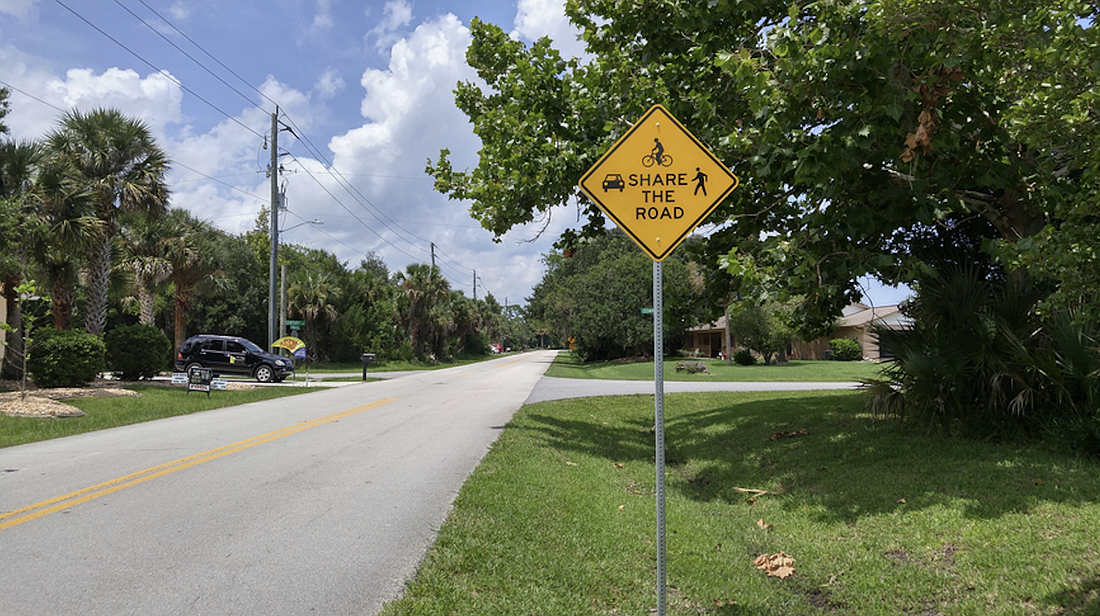- January 15, 2025
-
-
Loading

Loading

Palm Coast is now expected to get less tax money for roadway improvements this year than initially expected, and that's putting some nonessential projects on hold as the city redirects money to fund pavement management projects, Palm Coast Stormwater & Engineering Director Carl Cote told City Council members during a March 22 workshop.
"We're not talking small dollars. We're talking millions of dollars per year to maintain just our current road conditions."
— CARL COTE, Palm Coast Stormwater & Engineering director
The money in the city's Streets Improvement Fund comes from fuel taxes, so when people are working from home and buying less gas — or switching to electric cars and charging at home — less money flows into the city for street maintenance.
With less money expected in fiscal year 2022 and onward, the city will prioritize pavement management and safety and maintenance projects, Cote said during a presentation on the city's 10-year capital improvement plan.
"Sidewalks and bike paths and pedestrian accommodations — all those have been put on the back burner," Cote said. "... All those items have been kind of set aside as unfunded programs."
Similarly, parkway beautification projects and initiatives to replace old neighborhood entryway signs are only being taken up if they occur within the context of another, more essential nearby road project.
Although city staff know the city will need more money to maintain roadways, it's not yet clear how much.
“The information’s all being compiled and that plan is being together, but we do know based on our previous assessment that additional funding is needed for this program,” Cote said. “And we’re not talking small dollars. We’re talking millions of dollars per year to maintain just our current road conditions.”
City staff members will prepare a presentation for the council, Cote said, with potential options.
"We will be coming back to council with an independent presentation just specific to pavement management, just to talk about funding options," Cote said, "for council to select one of those options — so in five years we're not $20-million-plus in the hole in keeping up with our road improvements."
City staff also expect that the city government will have to spend a considerable sum on traffic signal maintenance.
"Over the past 15-plus years we've added countless traffic signals throughout the city," Cote said, "and as those age, they need upkeep, they need replacement. ... That is is a costly item that needs to be thought about and worked into our long range plan."
Major road-related projects that are getting money from other sources, like transportation impact fees and grants through the Florida Department of Transportation, are still in the works.
That includes the Old Kings Road widening project's second and third phases, a major city priority, and work on Florida Park Drive.
There's tentative funding for safety improvements on Whiteview Boulevard in the coming year's budget, and the city is working to get the design finalized.
Cimarron Drive is being studied for potential safety improvements, and city staff expect to have a presentation of potential options for the City Council sometime in June.
Safety improvements on Belle Terre Parkway/Boulevard are on FDOT's priory list for construction funding, but haven't been budgeted for or placed in FDOT's five-year work plan, Cote said.
Other, non-transportation-related capital projects in the city's 10-year capital improvement plan include the city's Maintenance and Operations facility, which will house multiple city departments.
Design for that facility is underway, and the first phase of construction will include the fleet facility, Cote said.
Recreation-related proposed capital improvements include adding parking at the Palm Coast Community Center and Indian Trails Sports Complex and completing planned work at Long Creek Nature Preserve, Lehigh Trailhead and Waterfront Park.